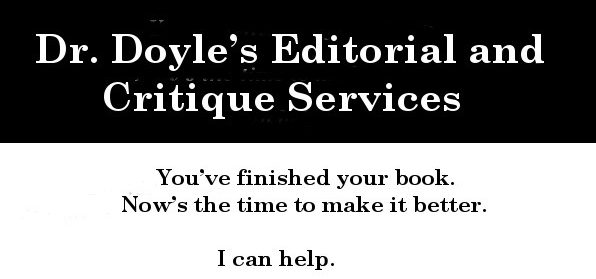These are things that can disrupt your day, ranked in order of ascending troublesomeness.
A Pop-Up Target is something unexpected that requires immediate action, but which you have the resources and ability to deal with promptly. A suddenly necessary payment at a time when the bank account is flush, for example, or an unanticipated piece of time-critical paperwork. The target jumps up, you deal with it, and you move on, slightly more adrenaline-charged than you were before.
Adventures in the Writing Life Version: The FedEx delivery man shows up on your doorstep Thursday afternoon with a package containing a stack of unpleasantly familiar paper and a cover letter: Dear Author–here’s the copyedited MS for your next novel. Please go over the copyedits and get them back to us by this coming Monday.
What you do: Cancel your social engagements for the next 48 hours. After a few seconds’ more thought, cancel the rest of your life for the next 48 hours. Check your local FedEx pickup to see what’s the absolute latest you can hand over the MS and still expect it to show up in New York on Monday. Check your bank account to see if you can afford that much money. (If both your budget and the publisher’s schedule really are that tight, phone your editor. Ask if you can FedEx the MS back to them on their dime, because otherwise it’s coming back to them by Priority Mail.) Buckle down and get to work on going over the copyedits, and be grateful that you aren’t having to deal with a Copyedit From Hell.
An Unexploded Land Mine is something that you thought that you’d already dealt with, or that you were supposed to deal with and forgot, or that somebody else completely neglected to inform you about back when it should have been dealt with. Some land mines are relatively mild; others can blow you sky-high. What they have in common is that “I should have known about this one, dammit!” quality that adds a touch of frustration and outrage to the whole deal.
Adventures in the Writing Life version: “What do you mean, I didn’t send you back the signed contracts!” Or, “No, you didn’t tell me you wanted a map for the front of the book and a glossary in the back!” Or, “I thought you were going to handle asking for blurbs, and now you’re telling me that I have to do it?”
What you do: Send back the signed contracts with a profuse apology for your absent-mindedness, and promise never to be so flaky again. Grit your teeth and draw the damned map and make up the damned glossary. Take a deep breath and make a list of writers you know who might be willing to come up with a back-cover blurb for you, then start writing letters.
And then there’s the Snake in a Can. Like the trick jar labeled “peanuts” with the spring-loaded snake inside, these show up completely unexpectedly and leap right out into your face. Also, sometimes the snake is real. A heavy-duty snake has the ability to disrupt your whole life for days, if not weeks, if you can’t manage to stuff it back into the can.
Adventures in the Writing Life Version: Your publisher goes bankrupt without warning. Your agent, with whom you have a warm personal relationship and who has been a prime force in building your career, gets hit by a truck while crossing the street in midtown Manhattan. The company for which you’ve happily written three potboiler tie-in novels and with whom you’re under contract for a fourth suddenly lets go all their in-house publishing staff (including the editor of your novel in progress, with whom you’ve had an excellent relationship) and replaces them with people you’ve never even heard of.
What you do: Don’t keep all your writing eggs in one basket. Maintain good relationships with everyone in your field, to the extent that it’s possible, so that if you’re suddenly swimming for your life in a rising flood you have people who might throw you a lifeline from the shore. Resign yourself to the fact that sometimes bad stuff is going to happen that isn’t your fault, and that you can’t do anything about, and that is going to mess up your life more than it messes up the lives of the people actually responsible — but don’t let yourself dwell on it for too long, because dwelling on it only uses up time and energy that you could be spending on writing something better for people who will respect you more.

